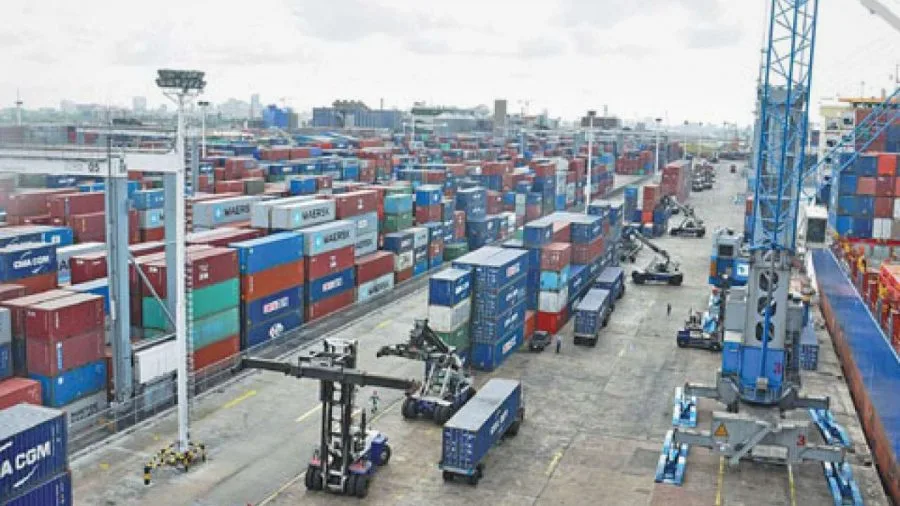The Nigerian Ports Authority (NPA) through the Federal Ministry of Transportation has secured the nod of the Federal Executive Council for the development of the Badagry Deep Seaport Project in Lagos State estimated at a cost of $2.59 billion.
The project is to be executed under a Private-Public-Partnership (PPP) arrangement.
The Minister of Transport, Mr Muazu Sambo, who disclosed this at the end of the weekly FEC meeting in Abuja, said the private sector will fund the project and manage it for 45 years before handing it over to the federal government.
Persecondnews reports that the project is to be executed in four phases through Build Own Operate and Transfer (BOOT), Public Private Partnership (PPP) model, is a full-scale Greenfield Commercial Deep Seaport.
In addition, on completion, it will alleviate existing traffic congestion in Lagos ports, provide modern port facilities and quality service, value for money to government by easing the pressure on national budget.
The project is also expected to boost revenue, accelerate Nigerian economic prosperity and propel economic empowerment of Nigerians through reduced transportation cost and seamless logistics which is a necessary precondition for the attainment of hub status.
Sambo said: “I presented a memo at council, with respect to the development of the Badagry Deep Seaport, under the public private partnership arrangement, where the private sector will inject money for the development of the port and at the end of the concessionary period, the port reverts to the Nigerian government through the Nigerian Ports Authority.
“The project court as approved by the council based on the final business case as approved earlier by the Infrastructure Concession Regulatory Commission in line with extant laws, stands at $2.59 billion. It is to be developed in four phases and the concessionary period is 45 years.”
The MD/CEO of NPA Mr, Mohammed Bello-Koko, had while receiving the first ever vessel to berth at the soon-to-be operational Lekki Deep Seaport said’ “Our strategic intent of becoming the maritime logistics hub for sustainable ports services in Africa rests heavily on how well we are able to deepen our efficiencies through construction of deep seaports in order to leverage the concomitant benefits of economies of scale.
“That automation remains the most veritable tool for assuring port efficiency, it provides an insight into the path we are already toeing as a management team to govern the operationalization of not just the forthcoming Badagry, Ibom and Bonny Deep Seaports”.
Read Also: Naira free-fall: CBN Governor’s blame game draws ire, swipe from group, calls for his sack























Leave a comment